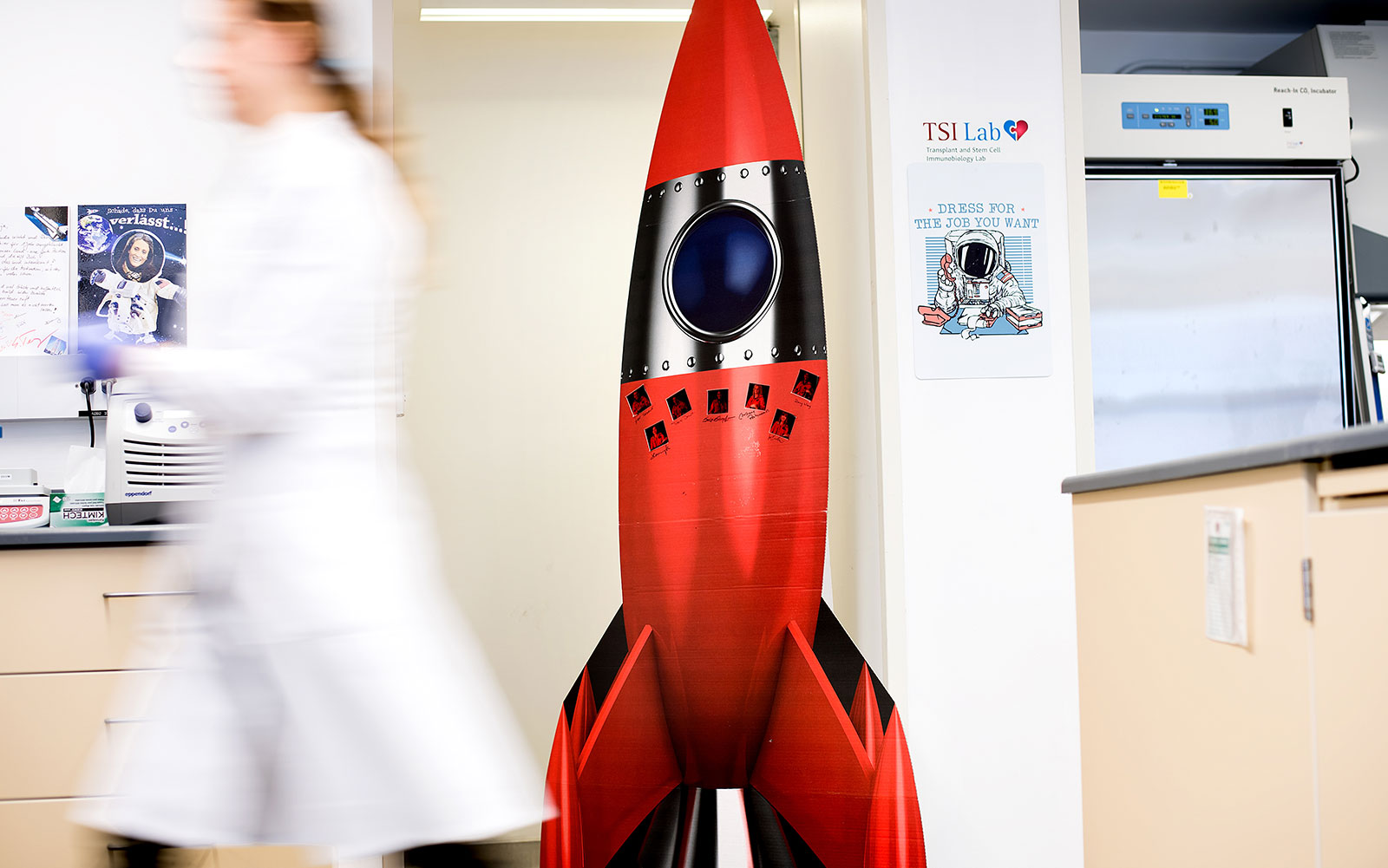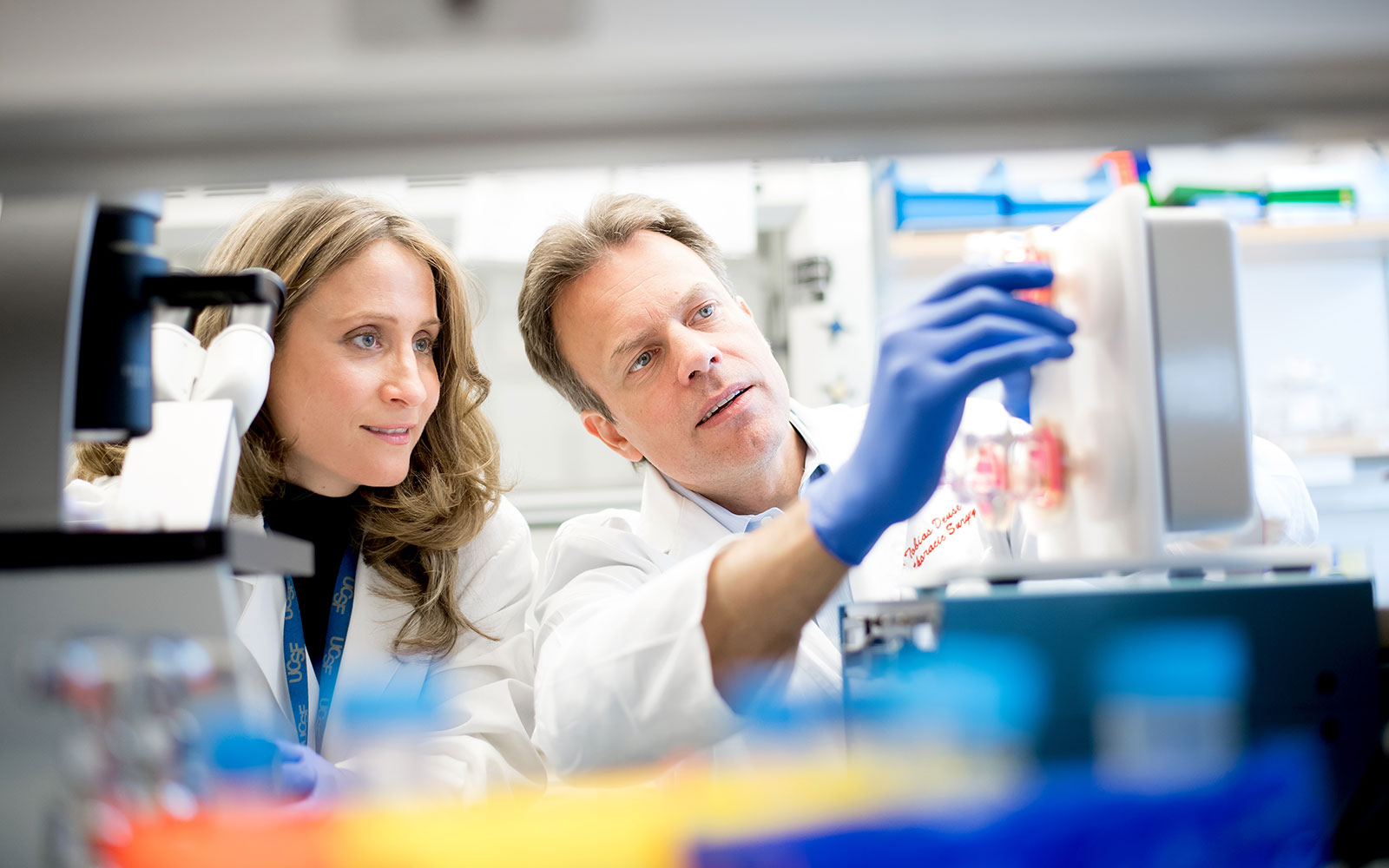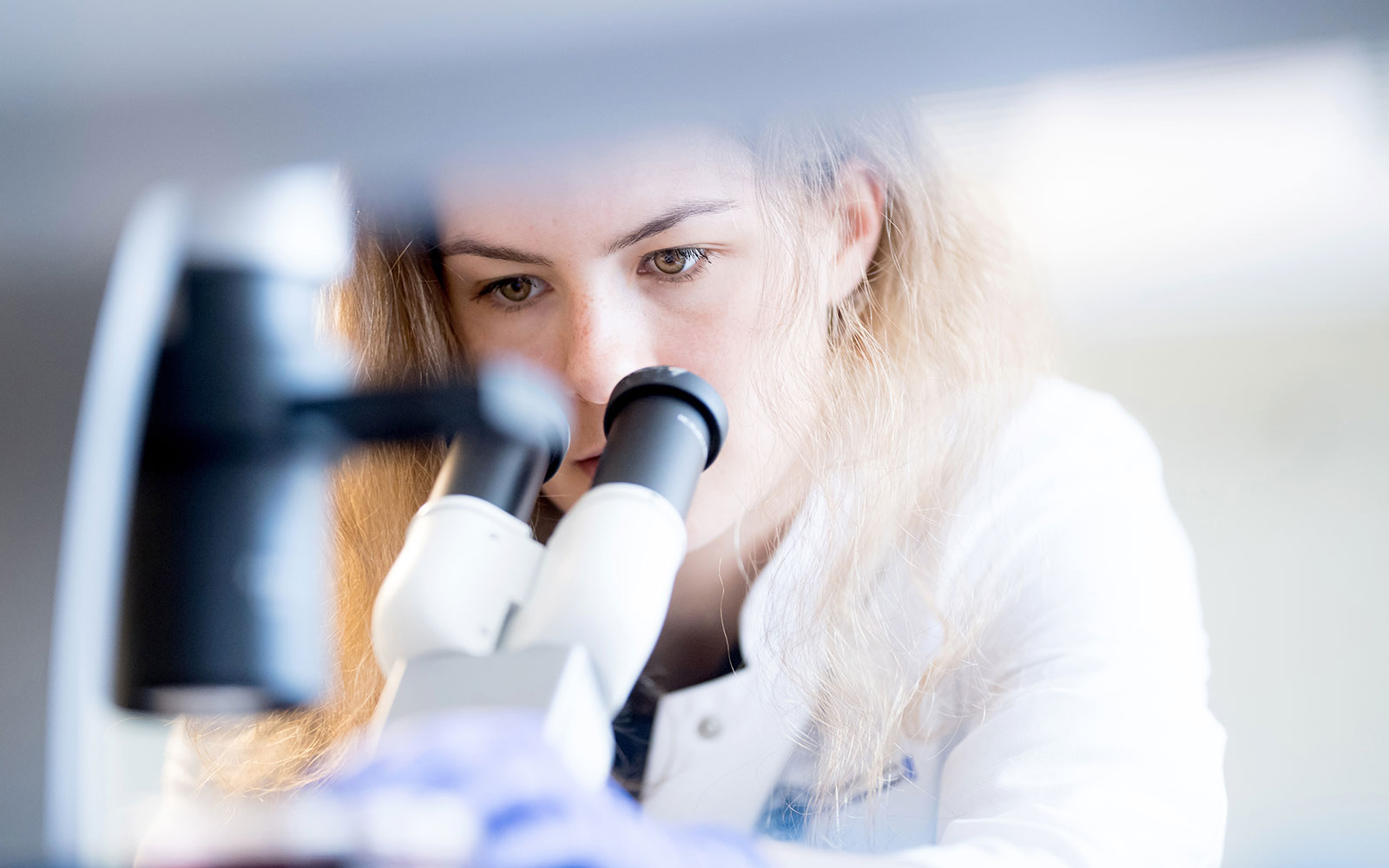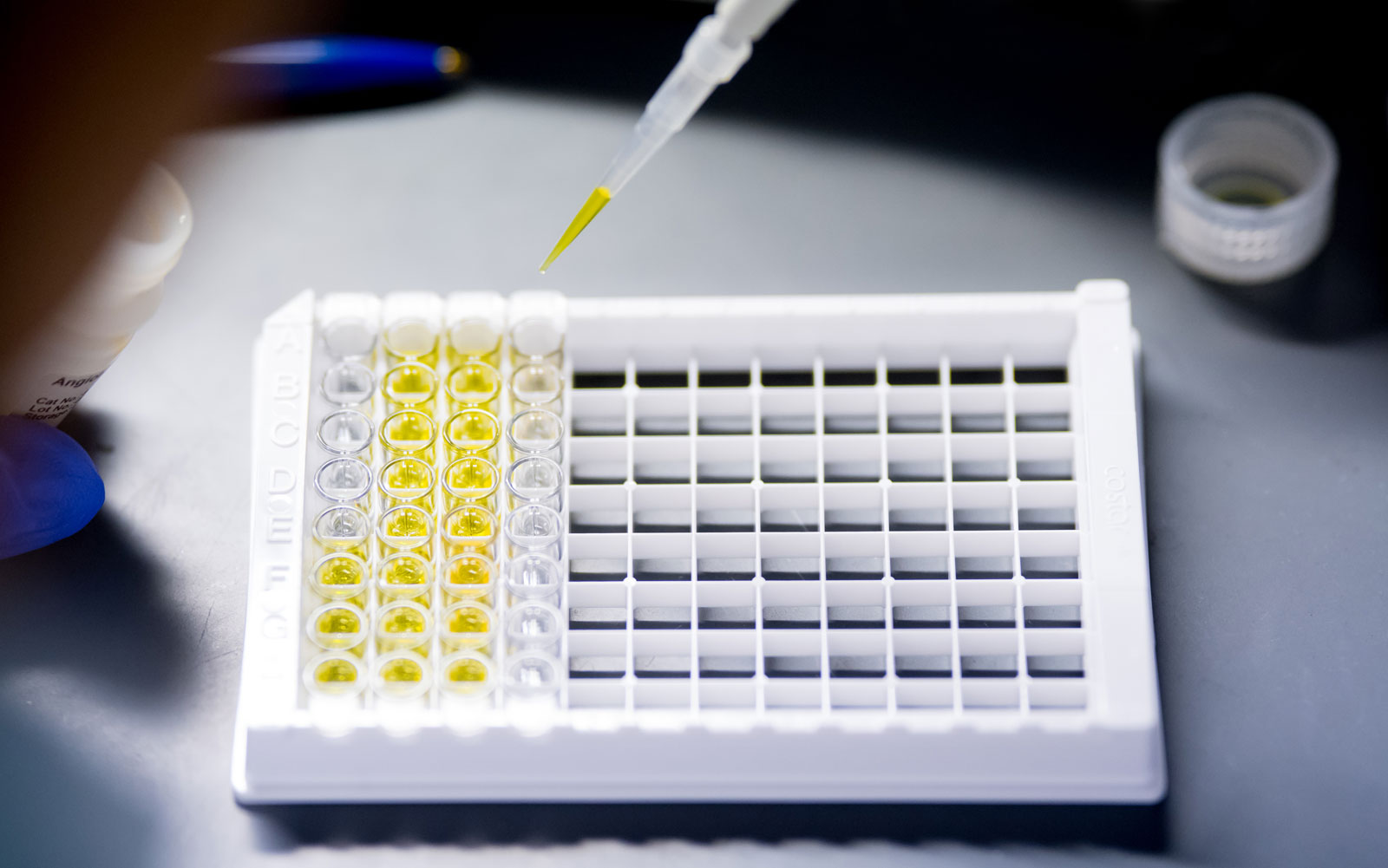Space Medicine With new funding from the National Aeronautics and Space Administration (NASA), the TSI Lab is investigating the vascular biology of “mice from space”, or rather mice that have spent time at the international space station (ISS). This research will provide insight into what physiological effects time in outer space might have on astronauts, with potentially important implications for future longer-term missions, and has the possibility to open the door to fascinating new discoveries that could be used in earth-bound cardiovascular research. With new funding from the National Aeronautics and Space Administration (NASA), the TSI Lab is investigating the vascular biology of “mice from space”, or rather mice that have spent time at the international space station (ISS). This research will provide insight into what physiological effects time in outer space might have on astronauts, with potentially important implications for future longer-term missions, and has the possibility to open the door to fascinating new discoveries that could be used in earth-bound cardiovascular research.
Stem Cell Immunobiology Stem cell transplantation is a quickly developing area of research with the goal of replacing, regenerating, or reinvigorating injured tissues. Allogeneic stem cells are often rejected by the immune system of the transplant recipient, drastically reducing their potential positive therapeutic effects. Upon the advent of induced pluripotent stem cells (iPS cells), the possibility of creating patient-specific stem cell lines gave hope for a reduced risk of rejection. Stem cell transplantation is a quickly developing area of research with the goal of replacing, regenerating, or reinvigorating injured tissues. Allogeneic stem cells are often rejected by the immune system of the transplant recipient, drastically reducing their potential positive therapeutic effects. Upon the advent of induced pluripotent stem cells (iPS cells), the possibility of creating patient-specific stem cell lines gave hope for a reduced risk of rejection.
It is apparent, however, that large-scale generation of patient-specific iPS cells is not time, cost, or labor effective. Somatic cell nuclear transfer (SCNT) was proposed as a possible alternative to quickly and easily generate patient-specific material, but the TSI Lab recently showed that mismatched mitochondrial proteins found after SCNT are enough to trigger rejection (Deuse et al. 2015). It remains one of the “holy grails” of stem cell transplantation research to find a technique that consistently does not result in rejection.
The TSI Lab is currently pursuing multiple methods to create a so called “off the shelf” stem cell line that could be used in any patient without triggering an immune response. This might be achieved by molecularly modifying currently available stem cell lines to create non-immunogenic stem cell lines. By altering the proteins that cause rejection in the first place, these lines might be able to avoid immune recognition. Alternatively, generating a local hypo-immunogenic environment that could prevent post-transplant rejection without affecting the general immune system would have a myriad of potential applications. Many intriguing research directions are presently emerging at the TSI Lab.
Related Publications
Deuse T, Wang D, Stubbendorff M, Itagaki R, Grabosch A, Greaves LC, Alawi M, Grünewald A, Hu X, Hua X, Velden J, Reichenspurner H, Robbins RC, Jaenisch R, Weissman IL, Schrepfer S
SCNT-derived ESCs with mismatched mitochondria trigger an immune response in allogeneic hosts.
Cell stem cell, Jan-8-2015;16(1):33-8. Epub 2014 Nov 20.
Transplant Immunology Organ transplantation is often the only clinical option available for treating certain types of cardiovascular disease. While frequently successfully performed, organ transplantation is often accompanied by immune system complications that result in rejection. The TSI Lab is highly motivated toward designing methods to help prevent such rejection, ranging from investigating the immunogenicity of matrix components of bioengineered tissue for transplantation (Conradi et al. 2015), to use of techniques that allow visualization of immune responses after transplantation (Conradi et al. 2011), to identifying novel immunosuppressants for prevention of acute cardiac graft rejection (Deuse et al. 2012). The TSI Lab continues to develop new concepts to identify and prevent immune rejection post-transplantion. Organ transplantation is often the only clinical option available for treating certain types of cardiovascular disease. While frequently successfully performed, organ transplantation is often accompanied by immune system complications that result in rejection. The TSI Lab is highly motivated toward designing methods to help prevent such rejection, ranging from investigating the immunogenicity of matrix components of bioengineered tissue for transplantation (Conradi et al. 2015), to use of techniques that allow visualization of immune responses after transplantation (Conradi et al. 2011), to identifying novel immunosuppressants for prevention of acute cardiac graft rejection (Deuse et al. 2012). The TSI Lab continues to develop new concepts to identify and prevent immune rejection post-transplantion.
Related Publications
Conradi L, Pahrmann C, Schmidt S, Deuse T, Hansen A, Eder A, Reichenspurner H, Robbins RC, Eschenhagen T, Schrepfer S
Bioluminescence imaging for assessment of immune responses following implantation of engineered heart tissue (EHT).
Journal of visualized experiments : JoVE, 2011;[epublish](52).
Conradi L, Schmidt S, Neofytou E, Deuse T, Peters L, Eder A, Hua X, Hansen A, Robbins RC, Beygui RE, Reichenspurner H, Eschenhagen T, Schrepfer S
Immunobiology of fibrin-based engineered heart tissue.
Stem cells translational medicine, Jun-2015;4(6):625-31. Epub 2015 May 6.
Deuse T, Hua X, Taylor V, Stubbendorff M, Baluom M, Chen Y, Park G, Velden J, Streichert T, Reichenspurner H, Robbins RC, Schrepfer S
Significant reduction of acute cardiac allograft rejection by selective janus kinase-1/3 inhibition using R507 and R545.
Transplantation, Oct-15-2012;94(7):695-702.
Cardiovascular Disease Cardiovascular disease (CD) is responsible for around 30% of all mortalities, making CD the foremost cause of death worldwide. Accordingly, development of cutting edge CD treatment options has become a high priority for researchers. The TSI Lab is focused on generating methods to treat CD from multiple directions, including avenues associated with drug identification and improved transplantation methodology. Cardiovascular disease (CD) is responsible for around 30% of all mortalities, making CD the foremost cause of death worldwide. Accordingly, development of cutting edge CD treatment options has become a high priority for researchers. The TSI Lab is focused on generating methods to treat CD from multiple directions, including avenues associated with drug identification and improved transplantation methodology.
Recent TSI Lab CD treatment research has included several clinically relevant discoveries. One area of innovation has been with regard to preventing vascular restenosis, a potentially fatal development which can occur either as a by-product of CD or in response to otherwise positive transplantation treatments. The TSI Lab has identified multiple methods to prevent the progression of restenosis, including through the use of dichloroacetate (Deuse et al. 2014) and by inhibiting ε Protein Kinase C (Deuse et al. 2010) in order to reduce smooth muscle cell proliferation and activation. The TSI Lab continues to pursue new methods to combat CD and its associated medical complications.
Related Publications
Deuse T, Koyanagi T, Erben RG, Hua X, Velden J, Ikeno F, Reichenspurner H, Robbins RC, Mochly-Rosen D, Schrepfer S
Sustained inhibition of epsilon protein kinase C inhibits vascular restenosis after balloon injury and stenting.
Circulation, Sep-14-2010;122(11 Suppl):S170-8.
Deuse T, Hua X, Wang D, Maegdefessel L, Heeren J, Scheja L, Bolaños JP, Rakovic A, Spin JM, Stubbendorff M, Ikeno F, Länger F, Zeller T, Schulte-Uentrop L, Stoehr A, Itagaki R, Haddad F, Eschenhagen T, Blankenberg S, Kiefmann R, Reichenspurner H, Velden J, Klein C, Yeung A, Robbins RC, Tsao PS, Schrepfer S
Dichloroacetate prevents restenosis in preclinical animal models of vessel injury.
Nature, May-29-2014;509(7502):641-4. Epub 2014 Apr 20.
|